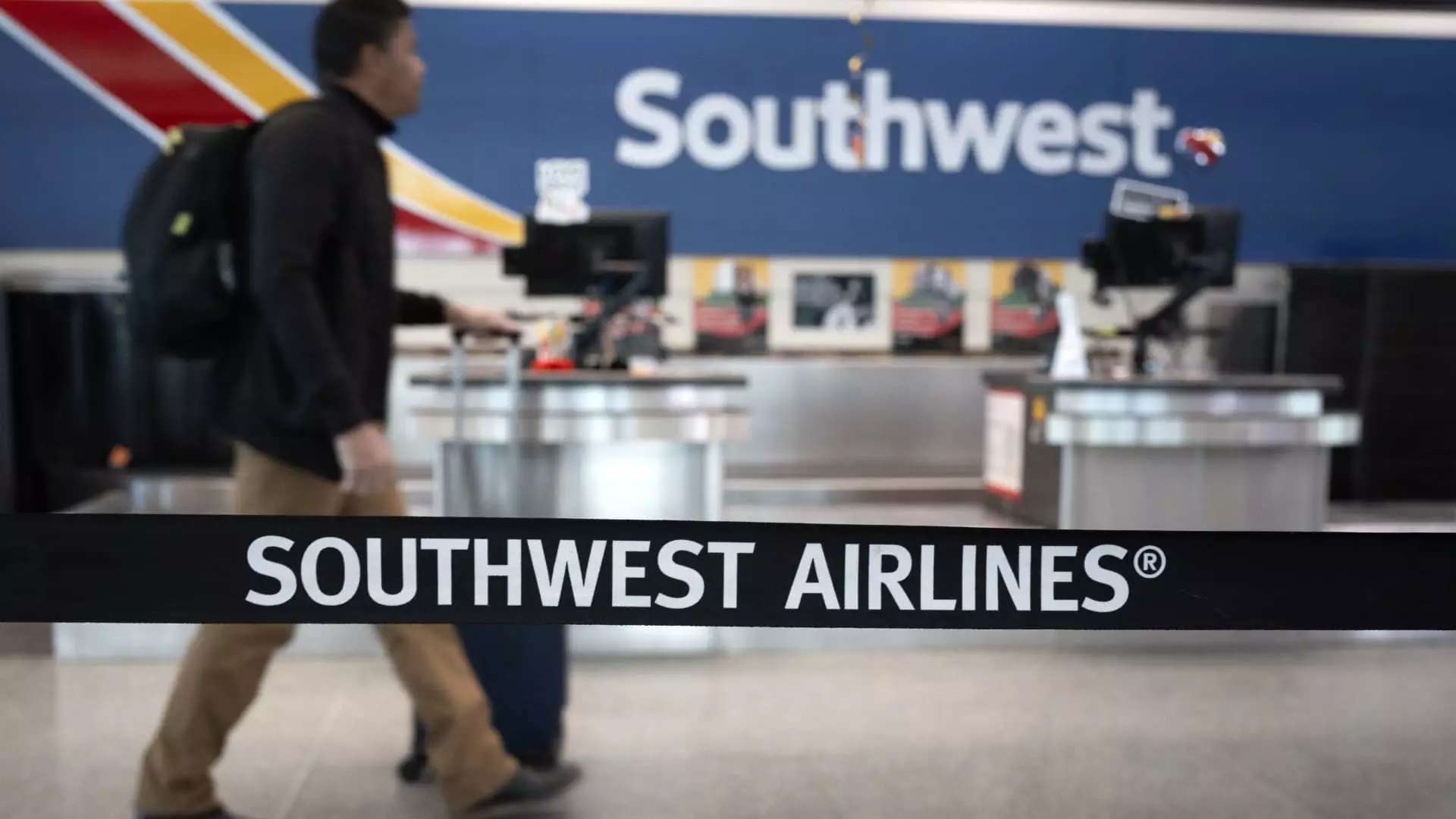For over half a century, Southwest Airlines has stood as a benchmark in the airline industry, particularly with its iconic “two bags fly free” policy. This feature has not merely been a marketing strategy but a core tenet of the brand’s identity, setting it miles apart from the competition. However, as of Wednesday, that unequivocal commitment to free checked luggage crumbles under pressure to enhance profitability. This shift isn’t just an isolated decision; it symbolizes a broader trend in the airline industry that often prioritizes short-term financial gains over customer experience. Southwest’s management now joins the ranks of airlines with uninspired baggage fees, playing a risky game with what has historically been a customer-centric ethos.
The decision to introduce baggage fees resonates deeply with the dissatisfaction many travelers carry regarding the escalating costs of air travel. According to federal data, airlines raked in nearly $7.3 billion from baggage fees last year. So it raises the question: at what point does the desire for profit overshadow the needs and loyalty of the customer base? While business imperatives are crucial, the fallout from this policy change could destabilize Southwest’s vital connection with its customers.
A Bleak Future for Southwest Loyalists
November 2023 marks not only the end of an era but a perilous shift in the airline’s treatment of its frequent flyers. Customers who purchase tickets after this alteration will soon find themselves confronted with fees not just for additional bags, but also for what once made flying with Southwest a uniquely rewarding experience. The decision is unsettling not only because of added costs but also because it inflicts a sense of betrayal upon loyal travelers who have confidently relied upon Southwest for years.
The loyalty program, once a beacon of favoritism for frequent flyers, now appears to be morphing into a mere shadow of its former self. Sure, those with elite status will still enjoy two free checked bags, but what does that mean for the average traveler? Southwest’s drive to align with practices established by Delta and American Airlines only trivializes its earlier promises, making it feel more like a one-size-fits-all commodity rather than a unique travel experience.
Basic Economy: A Detrimental Step Backward
Southwest’s decision to introduce a basic economy ticket is not only uninspired but also highlights a troubling commodification of air travel. While competitors have long made a habit of segmenting passengers based on the ‘value’ of their purchase, Southwest had previously touted simplicity and clarity in its fare structure. With this new fare class, travelers can expect to be the last to board, losing what little peace of mind remains at a chaotic gate. Add to that the expiration of fare credits, and it becomes clear that the customer is being nudged into a corner.
Such a move draws parallel questions about the ethics of airline pricing strategies. By employing a strategy that resembles a competitive race to the bottom, Southwest is not just making air travel more expensive; it is eroding the very values it once championed. This dynamic shift undermines the foundation of trust built between the airline and its customers, creating a market scenario in which the customer experience is neglected in favor of maximizing revenue.
The New Reality: More Fees, Less Flexibility
With the discontinuation of the “Wanna Get Away” fare, travelers are left with a dismal perception of flexibility. Are customers now just cash cows siphoned for every conceivable charge? Additional fees for changing flights, paired with restrictive policies attached to the new ticket class, make flying with Southwest increasingly burdensome. The narrative that the company will take care of its customers is now tinged with a harsher realism that leaves travelers feeling manipulated and exploited.
Moreover, the anticipated overhead bin enhancements and carry-on allowances indicate that the airline expects a rush on these services as customers strive to circumvent burgeoning baggage fees. It’s a puzzling contradiction, given that the crux of a pleasant travel experience lies in ease and accessibility. The disjointed approach to accommodating growing passenger demands raises questions about whether Southwest is actually prepared for the inevitable backlash this policy will engender.
Final Thoughts: The Danger of Losing a Customer-Centric Approach
The seismic policy changes from Southwest Airlines reflect a worrying trajectory not only for the airline but for the aviation industry at large. As management signals a retreat from long-held commitments to customer service, it indicates a cultural shift that could alienate a loyal base of patrons. The decision to charge for bags is emblematic of deeper issues concerning profitability versus customer satisfaction. If other airlines follow suit, air travel may soon become an even more fraught experience, filled with potential surprises and new fees. Ultimately, the spirit of flying for the average traveler risks being replaced by an impersonal, cost-driven nightmare that few genuinely welcome.

